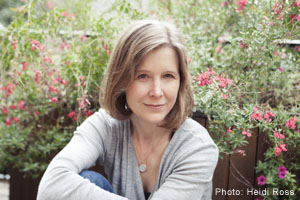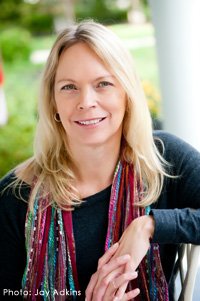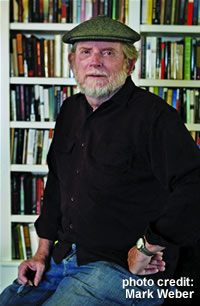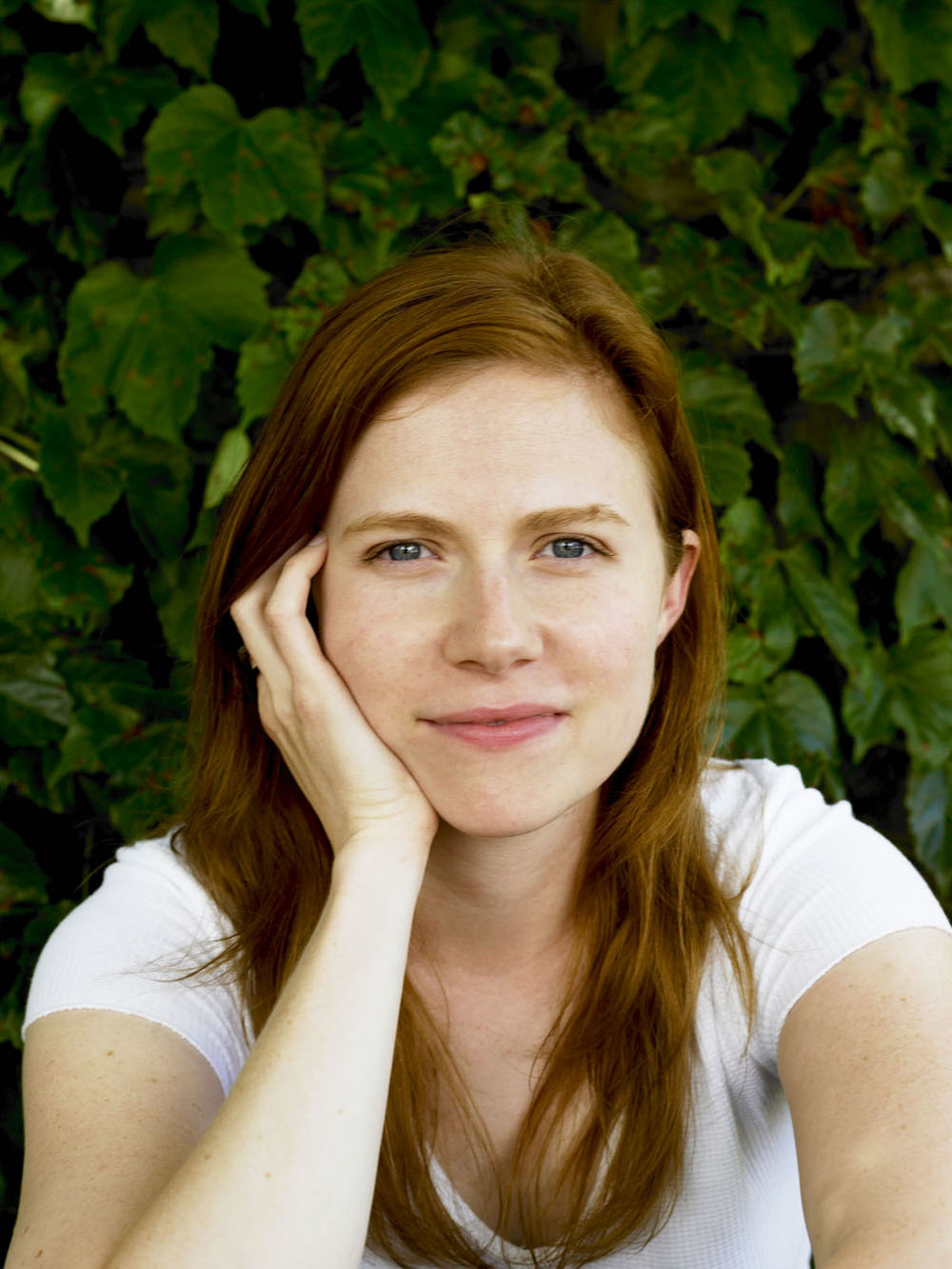It’s not yet July, but 2013 has already brought a bountiful harvest of awards and honors for Tennessee writers, including prizes for literary excellence, prestigious fellowships and recognition for service to the literary community.
 Novelist Ann Patchett, who is a perennial winner of literary awards, including the PEN/Faulkner Award and Britain’s Orange Prize, is one of this year’s recipients of Tennessee’s highest honor in the arts, a Governor’s Arts Award from the state’s Arts Commission. She accepted the honor in a special ceremony at the governor’s mansion in April. Though the Governor’s Award highlights artistic achievement across a career, the extraordinary success of Patchett’s venture into independent bookselling through Nashville’s Parnassus Books was no doubt a factor in her second award this season: the 2012-2013 WNBA Award from the Women’s National Book Association. The prize, which is given to an American woman for “meritorious work in the world of books,” was presented to Patchett during a June 9 reception at her bookstore. Previous winners include Eleanor Roosevelt, Pearl Buck, and Doris Kearns Goodwin. Patchett will launch her next book, an essay collection titled This is the Story of a Happy Marriage, at the store in November.
Novelist Ann Patchett, who is a perennial winner of literary awards, including the PEN/Faulkner Award and Britain’s Orange Prize, is one of this year’s recipients of Tennessee’s highest honor in the arts, a Governor’s Arts Award from the state’s Arts Commission. She accepted the honor in a special ceremony at the governor’s mansion in April. Though the Governor’s Award highlights artistic achievement across a career, the extraordinary success of Patchett’s venture into independent bookselling through Nashville’s Parnassus Books was no doubt a factor in her second award this season: the 2012-2013 WNBA Award from the Women’s National Book Association. The prize, which is given to an American woman for “meritorious work in the world of books,” was presented to Patchett during a June 9 reception at her bookstore. Previous winners include Eleanor Roosevelt, Pearl Buck, and Doris Kearns Goodwin. Patchett will launch her next book, an essay collection titled This is the Story of a Happy Marriage, at the store in November.
 University of Memphis professor Kristen Iversen, who directs the M.F.A. program in creative writing there, has received a a Reading the West Award for Full Body Burden. Iversen’s book, which examines the history of the troubled Rocky Flats nuclear facility in Colorado, has garnered both critical praise and intense popular interest, leading to a whirlwind of public appearances. Read the essay she wrote for Chapter 16 about her sudden notoriety here.
University of Memphis professor Kristen Iversen, who directs the M.F.A. program in creative writing there, has received a a Reading the West Award for Full Body Burden. Iversen’s book, which examines the history of the troubled Rocky Flats nuclear facility in Colorado, has garnered both critical praise and intense popular interest, leading to a whirlwind of public appearances. Read the essay she wrote for Chapter 16 about her sudden notoriety here.
 Iversen’s former colleague Richard Bausch, who departed Memphis in 2012 for a post at Chapman University in California, was honored with the Corrington Award in February. Previous winners of the honor for literary excellence, given by Centenary College in Louisiana, include Eudora Welty, James Dickey, and Richard Wilbur. In April Bausch also won the prestigious Rea Award for short-story writing, which was described by Richard Ford, one of this year’s judges, as the “crème de la crème” of awards for story writers. Bausch joins an illustrious list of previous recipients that includes Ann Beattie, Cynthia Ozick, and Donald Barthelme. Shortly after the announcement of the award, and in response to the Boston Marathon bombings, WNYC in New York rebroadcast a reading of Bausch’s story “Valor” as part of its Selected Shorts series.
Iversen’s former colleague Richard Bausch, who departed Memphis in 2012 for a post at Chapman University in California, was honored with the Corrington Award in February. Previous winners of the honor for literary excellence, given by Centenary College in Louisiana, include Eudora Welty, James Dickey, and Richard Wilbur. In April Bausch also won the prestigious Rea Award for short-story writing, which was described by Richard Ford, one of this year’s judges, as the “crème de la crème” of awards for story writers. Bausch joins an illustrious list of previous recipients that includes Ann Beattie, Cynthia Ozick, and Donald Barthelme. Shortly after the announcement of the award, and in response to the Boston Marathon bombings, WNYC in New York rebroadcast a reading of Bausch’s story “Valor” as part of its Selected Shorts series.
 Silas House, who left Harrogate’s Lincoln Memorial University in 2010 to accept the National Endowment for the Humanities Chair in Appalachian Studies at Berea College in Kentucky, has won this year’s Nautilus Gold Award for middle-grade and teen fiction for Same Sun Here. The prize honors “books that inspire and connect our lives as individuals, communities and global citizens.” Acclaimed children’s author Katherine Paterson, whom Chapter 16 claims as a Tennessee writer because she graduated from King College in Bristol, has received the Laura Ingalls Wilder Award from the American Library Association for her “substantial and lasting contribution to literature for children.” You can hear her interview with NPR here.
Silas House, who left Harrogate’s Lincoln Memorial University in 2010 to accept the National Endowment for the Humanities Chair in Appalachian Studies at Berea College in Kentucky, has won this year’s Nautilus Gold Award for middle-grade and teen fiction for Same Sun Here. The prize honors “books that inspire and connect our lives as individuals, communities and global citizens.” Acclaimed children’s author Katherine Paterson, whom Chapter 16 claims as a Tennessee writer because she graduated from King College in Bristol, has received the Laura Ingalls Wilder Award from the American Library Association for her “substantial and lasting contribution to literature for children.” You can hear her interview with NPR here.
 Margaret Lazarus Dean, who teaches English at the University of Tennessee in Knoxville, has received the Graywolf Press Nonfiction Prize for her forthcoming book Leaving Orbit: Notes from the Last Days of American Spaceflight. The book, which has been described as “an incisive look at how our forays into space, then and now, have served to reflect our national imagination,” is due in 2015.
Margaret Lazarus Dean, who teaches English at the University of Tennessee in Knoxville, has received the Graywolf Press Nonfiction Prize for her forthcoming book Leaving Orbit: Notes from the Last Days of American Spaceflight. The book, which has been described as “an incisive look at how our forays into space, then and now, have served to reflect our national imagination,” is due in 2015.
The Forest Unseen by Sewanee biology professor David G. Haskell was described by E.O. Wilson as heralding a “new genre of nature writing,” and the book has garnered a slew of awards in addition to near-universal critical praise. Haskell received the 2013 Phil Reed Environmental Writing Award from the Southern Environmental Law Center, as well as a 2012 National Outdoor Book Award. In April, The Forest Unseen was also named a finalist for this year’s Pulitzer Prize in general nonfiction.
 In April, the Guggenheim Foundation named three Vanderbilt faculty members among its 2013 Fellows . Kate Daniels, Jane Landers, and Daniel Sharfstein received the prestigious grant, which was awarded to 175 scholars and artists this year from a pool of 3,000 applicants. Jane Landers, who is the Gertrude Conaway Vanderbilt Professor of History, has been widely lauded for her work on Africans in the Atlantic world, including her 2010 book, Atlantic Creoles in the Age of Revolutions. Sharfstein, a professor of law, received the 2012 J. Anthony Lukas Prize for nonfiction for The Invisible Line: Three American Families and the Secret Journey from Black to White. Both Landers and Sharfstein are working on new books. Daniels, an award-winning poet and the director of Vanderbilt’s M.F.A. program in creative writing, will use the fellowship to further poetry projects devoted to themes of mental illness and creativity. Read more about all three writers and their current work here.
In April, the Guggenheim Foundation named three Vanderbilt faculty members among its 2013 Fellows . Kate Daniels, Jane Landers, and Daniel Sharfstein received the prestigious grant, which was awarded to 175 scholars and artists this year from a pool of 3,000 applicants. Jane Landers, who is the Gertrude Conaway Vanderbilt Professor of History, has been widely lauded for her work on Africans in the Atlantic world, including her 2010 book, Atlantic Creoles in the Age of Revolutions. Sharfstein, a professor of law, received the 2012 J. Anthony Lukas Prize for nonfiction for The Invisible Line: Three American Families and the Secret Journey from Black to White. Both Landers and Sharfstein are working on new books. Daniels, an award-winning poet and the director of Vanderbilt’s M.F.A. program in creative writing, will use the fellowship to further poetry projects devoted to themes of mental illness and creativity. Read more about all three writers and their current work here.
Longtime Nashville resident Adam Ross, who enjoyed great critical praise for both his 2010 debut novel Mr. Peanut and a subsequent story collection, Ladies and Gentlemen, has won a Hodder Fellowship from the Lewis Center for the Arts at Princeton University. This generous award is given to support “a period of ‘studious leisure’” for artists in the early stages of their careers. Ross recently signed with Knopf again to publish his next novel, Playworld. “The best way to describe the book,” he said in a telephone interview, “is that it’s about a really bad year in the the life of a child actor.” The release date has not been set but is tentatively planned for summer 2015.
For more updates on Tennessee authors, please visit Chapter 16’s News & Notes page, here.





